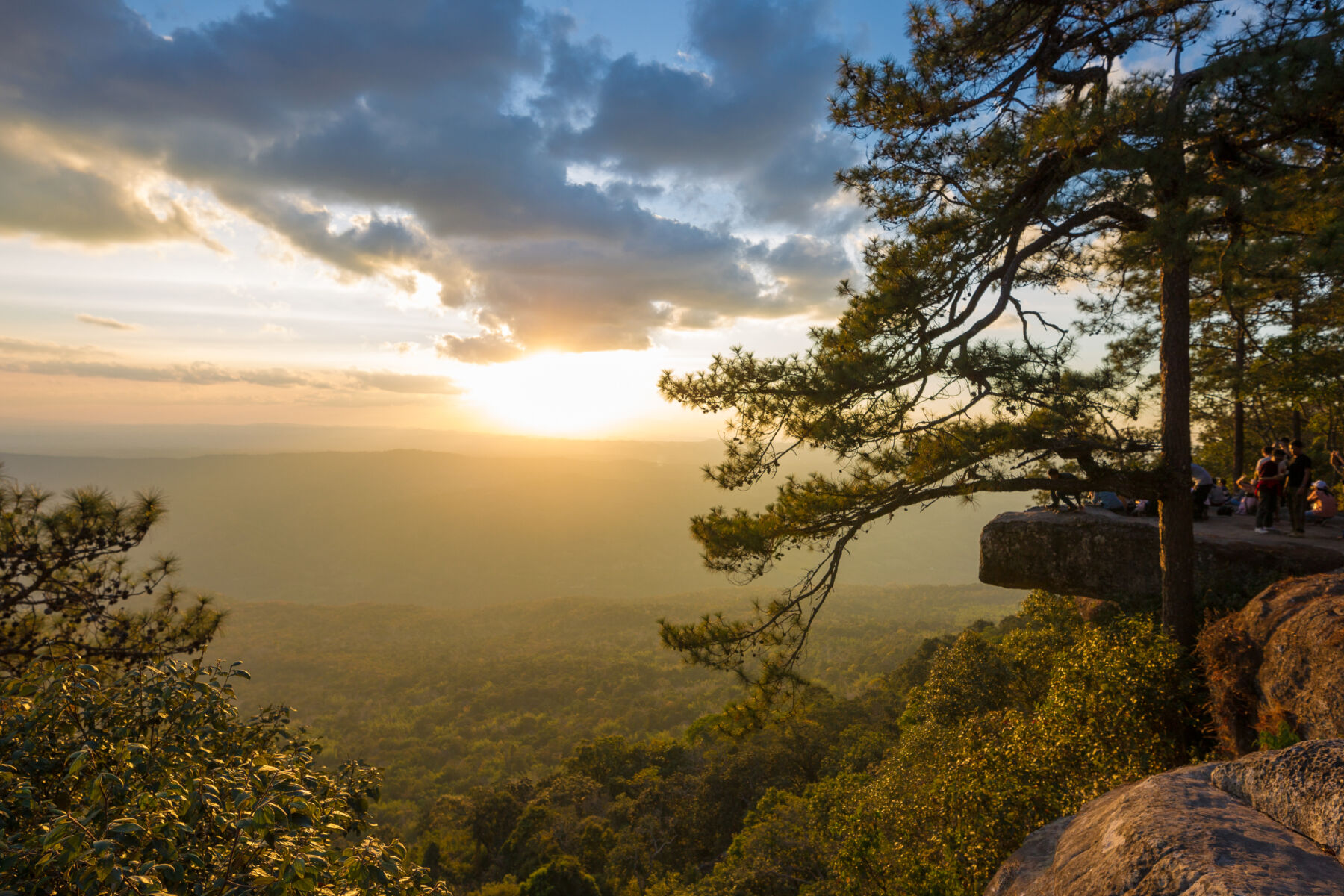Phu Kradueng National Park’s cable car project faces uncertainty

A cable car project, initially proposed in 1982 to reach the peak of a mountain at Phu Kradueng National Park in Thailand’s Loei province, may not materialise soon. According to the Ministry of Natural Resources and Environment, the decision will be reliant on a study due for completion in 2025.
The initial goal behind the proposed 4.4-kilometre cable car system was to boost tourism income. However, the initial environmental impact assessments conducted in 1984 and 1998 by Kasetsart University were left unutilised.
The project was revived in 2012 by the then-government of Yingluck Shinawatra and the Ministry of Natural Resources and Environment was tasked with conducting an Environmental Impact Assessment (EIA), with a budget of 23 million baht (US$ 660,375). The project received further support in 2016 from the Prayut Chan-o-cha government, which approved a budget of 633.89 million baht (US$ 18,200,243).
The Tourism and Sports Ministry noted that the cable car would enable elderly visitors to explore the park without the strenuous 3 to 5-hour mountain climb. However, the project met resistance from environmental activists, who expressed concerns about increased tourism leading to increased waste and the potential destruction of the park’s natural beauty, reported Bangkok Post.
Last year, a meeting between Dasta and the Loei provincial administration concluded that a further study of the project was required, focusing on the engineering system and environmental and economic impacts.
During a cabinet meeting in Nong Bua Lamphu province, the government acknowledged the project and approved 28 million baht (US$ 803,935) for the study, as stated by Puangpet Chunlaiad, Minister of the Prime Minister’s Office.
Jatuporn Buruspat, Permanent Secretary of the Ministry of Natural Resources and Environment, stressed the need for thorough consideration of all aspects of the project, especially the potential ecological impact of increased tourism activities.
While the 2012 EIA report claimed that the project would not harm the forest ecosystem due to the limited space required for the cable car, environmentalist Sasin Chalearmlarp expressed scepticism, stating that he has not seen any plans by the DNP to manage the potential tripling of tourist numbers with a cable car service.
Opinions on the project remain divided. Some argue that the cable car provides equal access for visitors with physical limitations, while others believe that it could detract from the park’s value as a destination for adventure trekking. The project’s future remains uncertain amidst these strong arguments and the park’s status as an ASEAN heritage park.
Latest Thailand News
Follow The Thaiger on Google News:


























